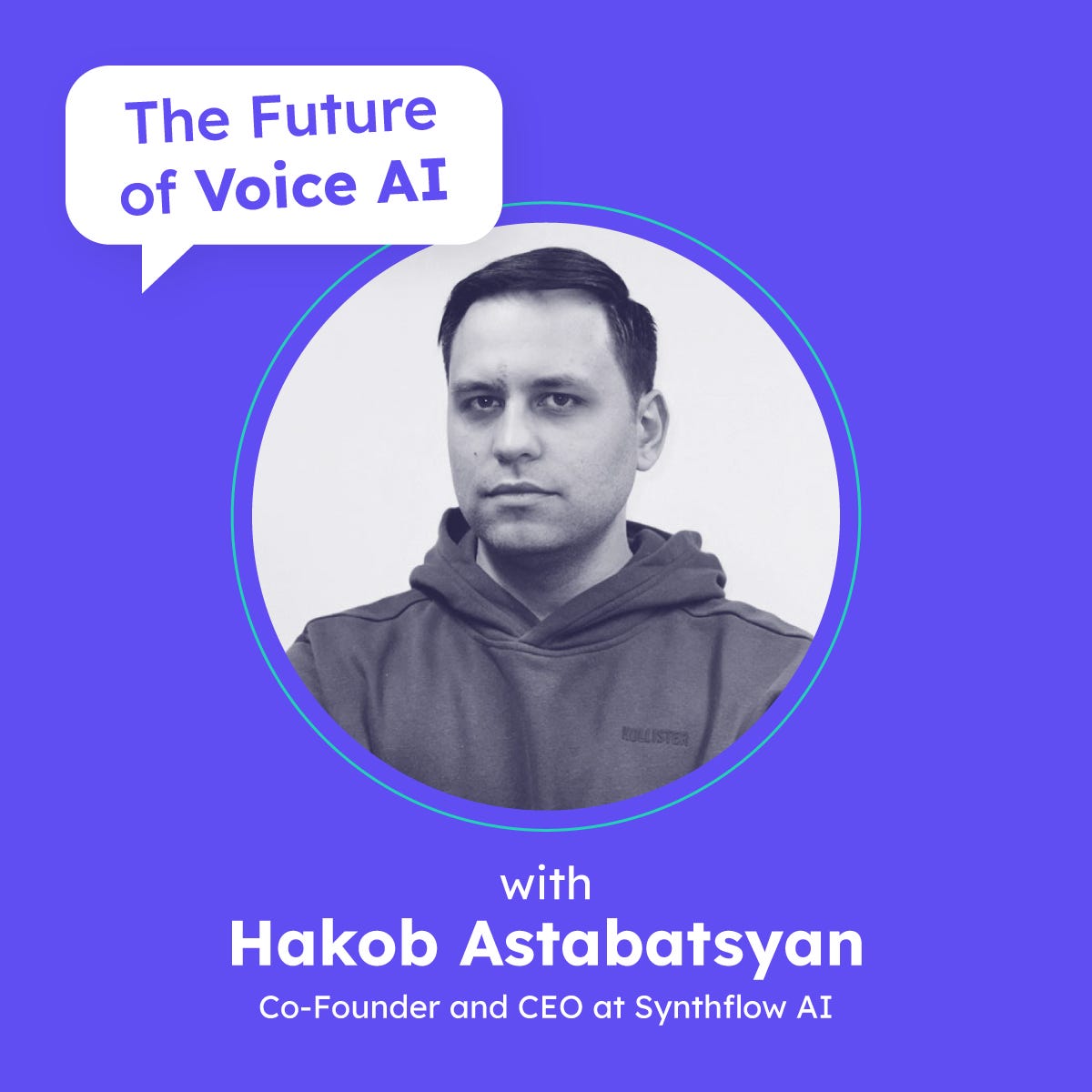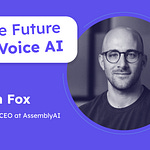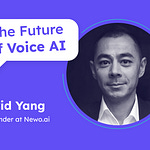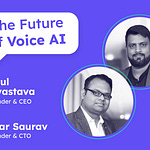In The Future of Voice AI series of interviews, I ask three questions to my guests:
- What problems do you currently see in Enterprise Voice AI?
- How does your company solve these problems?
- What solutions do you envision in the next 5 years?This episode’s guest is Hakob Astabatsyan, CEO & Co-Founder of Synthflow AI.
Hakob Astabatsyan is the CEO and Co-Founder of Synthflow, a Berlin-based startup that focuses on no-code, AI-driven voice assistant solutions. Founded in 2023, Synthflow AI was born to democratize access to cutting-edge AI voice technology enabling seamless and efficient customer interactions.
Hakob previously worked in tech ventures, and his leadership has been key to Synthflow's rapid growth. Since launching, the company has secured $9.1 million in funding and grown its customer base significantly.
Synthflow AI offers companies a no-code, end-to-end solution, to easily create AI voice assistants, customize them, and set up workflow automations in just a few clicks. By using the platform, users can quickly deploy voice assistants that schedule appointments, collect and share real-time information, and provide customer support. Since its emergence from stealth in December 2023, Synthflow has grown double-digits month-over-month and currently serves 1,000 customers globally.
Recap Video
Takeaways
Synthflow AI is one of only a few AI assistant vendors based in Europe and one of the fastest-growing startups in the voice AI space, with double-digit monthly growth since 2023.
The no-code platform lets businesses easily create and deploy voice AI assistants without technical expertise.
Personalizing customer interactions with voice AI will strengthen relationships and boost satisfaction.
The voice AI space is shifting toward easy-to-use platforms, driving faster adoption by non-technical users and broader industry growth.
Voice AI adoption has been strongest in English-speaking regions, but recent advancements support multiple languages.
Ethical considerations in AI, like transparency in decision-making and data handling, are gaining more attention.
Early adopters of voice AI gain a competitive edge by improving efficiency and customer satisfaction, especially in high-touch industries.
Scalability is critical in voice tech, and every company in the space recognizes its importance.
Like Shopify, tech integration must grow from simple beginnings to handle multiple systems as businesses expand.
There’s already strong market demand for voice AI, showing its increasing importance.
Questions remain about how quickly voice AI models will evolve and improve.
Specialized models work best for specific tasks, while generic models are faster for general conversations.
Emerging B2C applications like AI therapists and AI friends bring interesting challenges, especially for long conversations like therapy sessions.
Long-form conversations increase the risk of errors, as the longer the interaction, the higher the chance for things to go wrong.
Non-critical conversations are better suited for today’s AI, rather than mission-critical decisions.
In less than a year, voice AI has gotten 10x better.











